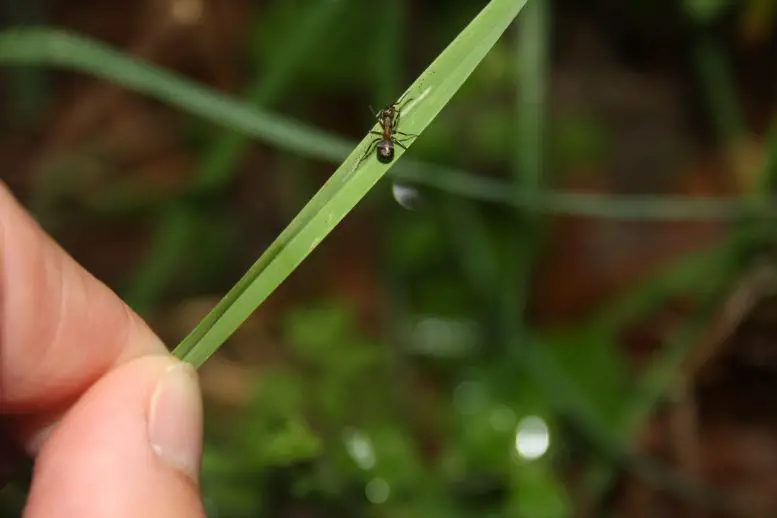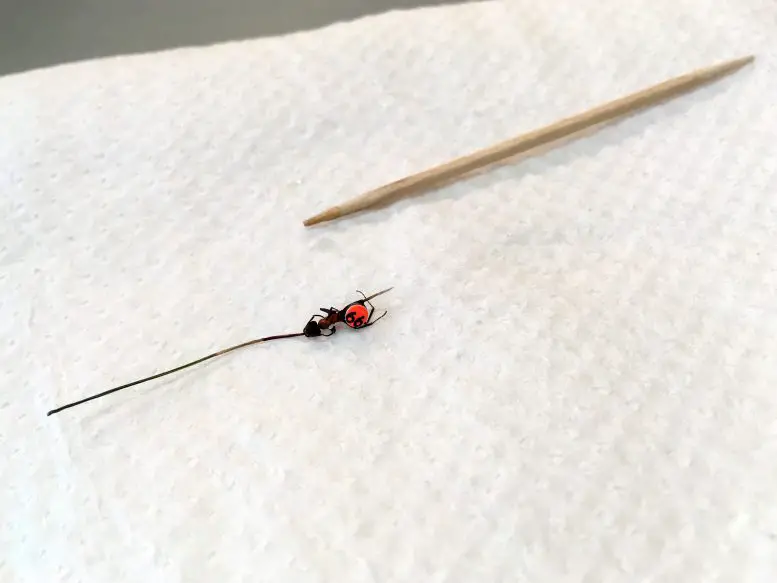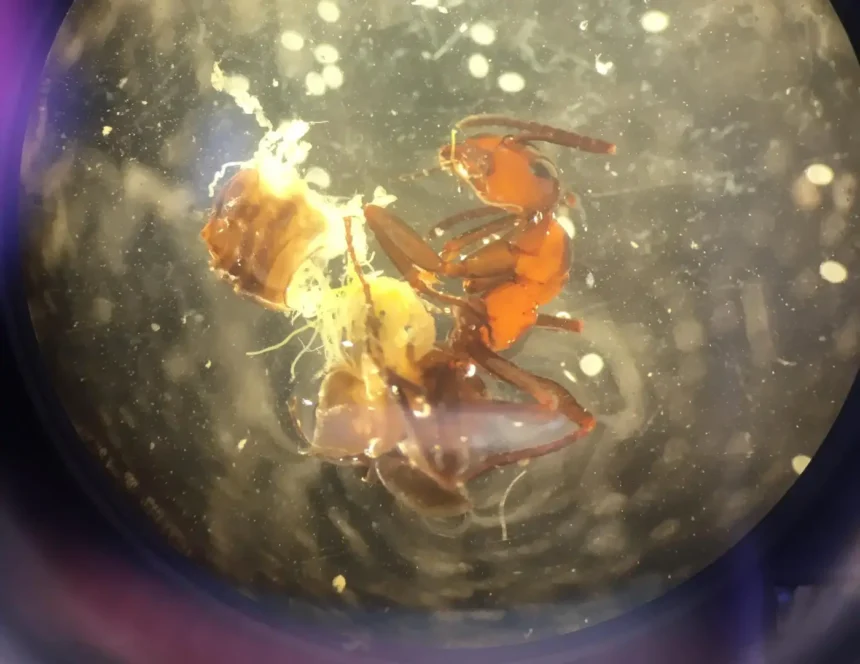Ants’ minds are taken over, causing them to cling to grass blades against their will. An extraordinary lifecycle strategy is used by the lancet liver fluke, in which snails, ants, and grazing animals unwittingly participate. Researchers are currently looking into the exact mechanics underlying this fascinating sort of mind control.
Zombies Ants
Imagine waking up with your jaws clamped onto the top of a moving blade of grass and having no idea how you got there. For ants infected with the lancet liver fluke, a small parasitic flatworm, it is the truth. Liver flukes have a convoluted, almost irrationally designed life cycle that starts with the brain-hijacking of the ant. Unwary ant crawls up and clamps its strong jaws onto the top of a blade of grass, increasing the likelihood that it will be consumed by grazers like cattle and deer.The Department of Plant and Environmental Sciences at the University of Copenhagen has found that the parasite’s capacity to subdue the ant is even more devious than previously thought. When it gets too hot, the parasite impressively manages to convince the ant to crawl back down the blade of grass

It makes sense to place the ants high in the grass to protect them from cattle or deer when they graze during the cold morning and evening hours, and then lower them again to shield them from the sun’s harmful rays. According to Associate Professor Brian Lund Fredensborg, who conducted the study with former graduate student Simone Nordstrand Gasque, currently a PhD candidate at Wageningen University in the Netherlands, “our discovery reveals a parasite that is more sophisticated than we originally believed it to be.”The study of the parasite has just been published in the scientific journal Behavioral Ecology.
Zombie “On/Off Switch”
Several hundred infected ants were marked with tags by the researchers in the Bidstrup Forests in Roskilde, Denmark.
“It took some dexterity to glue colours and numbers onto the rear segments of the ants, but it allowed us to keep track of them for longer periods of time,” explains Brian Lund Fredensborg.
The behaviour of the infected ants was then monitored in relation to temperature, humidity, time of day, and light. It was evident that ant behaviour was influenced by temperature. The ants were more likely to be affixed to the top of a blade of grass when the temperature was low. The ants gave up the grass when the temperature increased and skulked back down.
“We discovered that temperature and ant behaviour were clearly correlated. We made light of the ants’ zombie switch, according to Brian Lund Fredensborg.

Trojan Horse
Several hundred parasites enter the ant’s body once the liver fluke infects it. However, only one gets to the brain, where it might affect how the ant behaves. The belly of the ant houses the remaining liver flukes.
“This area may contain hundreds of liver flukes that are awaiting the ant that will serve as their next host. They are enclosed in a capsule that shields them from the stomach acid of the subsequent host while the liver fluke that was in charge of the ant dies. You might argue that it gives itself up for the sake of the others, according to Brian Lund Fredensborg.
As the parasite spreads around the host’s liver and bile ducts in animals with several liver fluke infections, liver damage can result.

Nature’s Biggest Influencer
There are numerous such examples of parasites that affect animal behaviour, according to Brian Lund Fredensborg. So, contrary to popular belief, parasites that manipulate their host’s behaviour play a bigger role in the food chain. According to Fredensborg, this new study illuminates a vastly underappreciated class of animals.
Despite the fact that scientific sources claim that parasitism is the most prevalent living form, parasites have historically not received much attention. This is partly because parasites are so challenging to investigate. However, parasites play a vital role in biodiversity and, by altering the behaviour of their hosts, can influence who consumes what in the natural world. Consequently, they are crucial for us to understand,” he says
The microscopic liver fluke is common throughout the world’s temperate climates, including Denmark. The researcher and his coworkers will keep looking into the parasite and how it takes control of an ant’s brain.
We now know that temperature determines when the parasite will take over an ant’s brain. But we still need to figure out which cocktail of chemical substances the parasite uses to turn ants into zombies,” Fredensborg concludes.


































